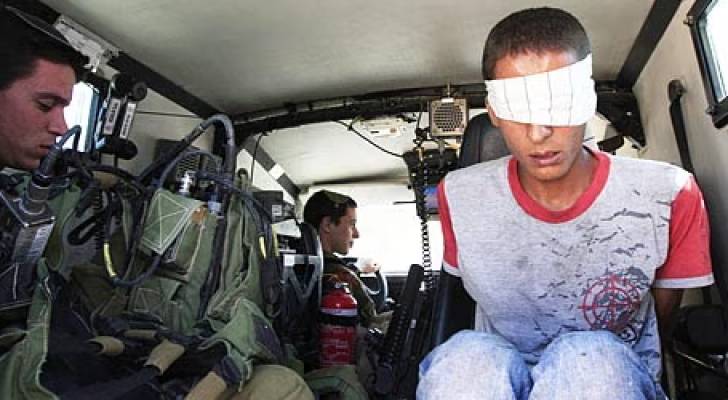Palestinian detainees in 'Israel' three times higher than Second Intifada
The 'Israeli' rights group HaMoked reported Monday that the number of Palestinian political detainees in 'Israeli' detention has reached unprecedented levels, now three times higher than during the Second Intifada.
According to figures from the 'Israel' Prison Service (IPS), there are currently 11,040 Palestinian detainees held on political or security-related grounds, the highest number 'Israel' has ever recorded.
Of these, 56 percent (6,239) are detained outside normal criminal procedures, while 44 percent (4,801) are being held through standard criminal proceedings.
HaMoked noted that among the 6,239 detainees outside criminal procedures, 3,577 are in administrative detention, a number that dwarfs the peak levels of the Second Intifada, when detainees in this category only just passed 1,000. An additional 2,662 are classified as “unlawful combatants.”
The report highlighted that even during periods of heightened unrest, such as the later years of the Second Intifada or the 2015–2016 “Knife Intifada”, the number of administrative detainees hovered closer to 700. In quieter years over the past two decades, the figure dropped to between 200 and 300, and during the Oslo period of the 1990s it fell to single or double digits.
HaMoked also estimated that several hundred Palestinians from Gaza are being held by the Israeli military as unlawful combatants, either awaiting transfer into IPS custody or due to prison overcrowding.
Neither administrative detainees nor unlawful combatants go through regular criminal trials, a practice widely criticized internationally. Administrative detainees have their cases reviewed by 'Israeli' military judges every three to six months, while unlawful combatants can potentially be held for longer periods under less-defined procedures.
HaMoked noted that detainees from the West Bank are more often placed under administrative detention, while detainees from Gaza are more often classified as unlawful combatants.
'Israel' claimes that administrative detention is used for “terrorists who would be dangerous to release, but who could not be convicted in regular court proceedings.”




